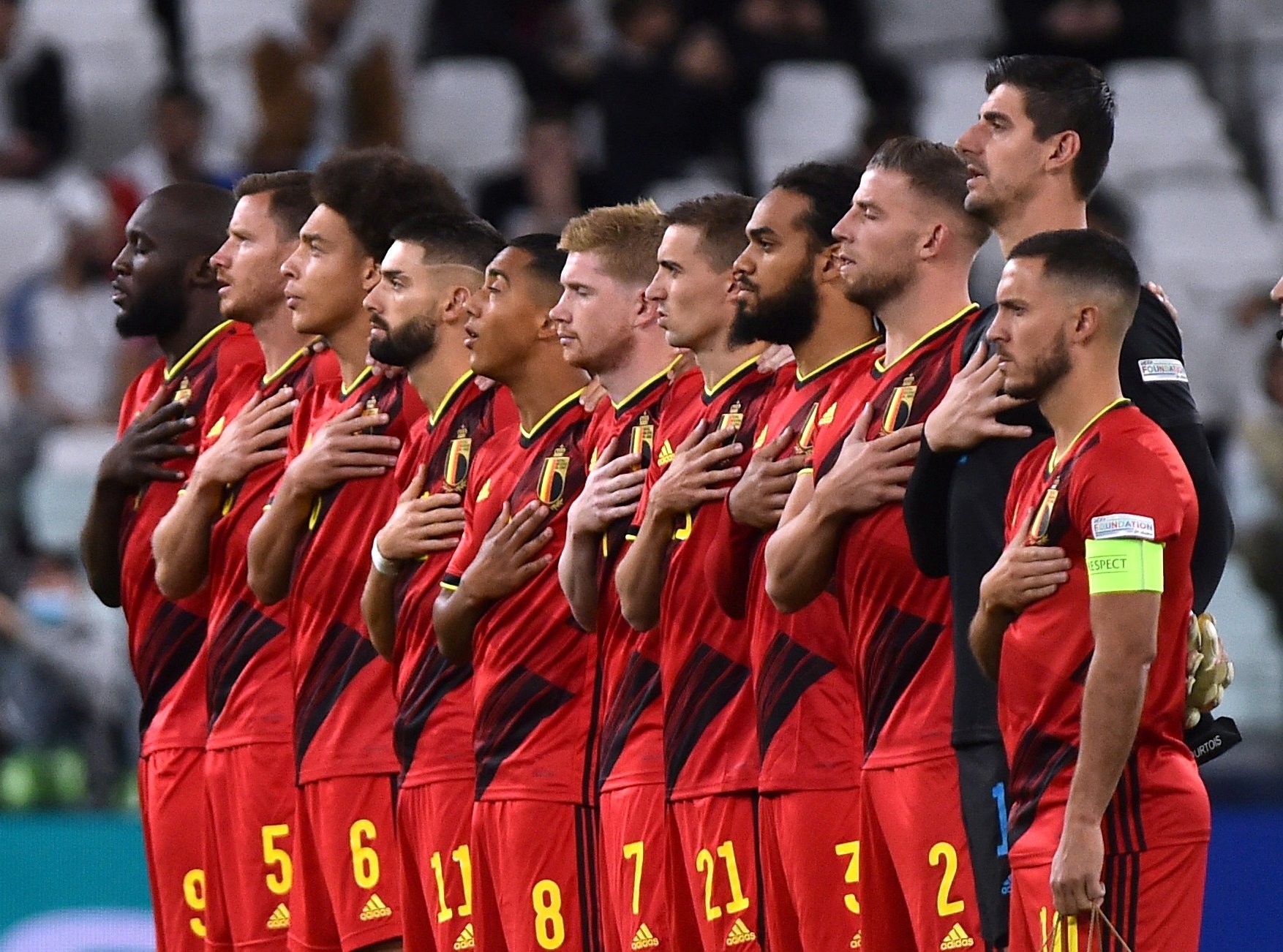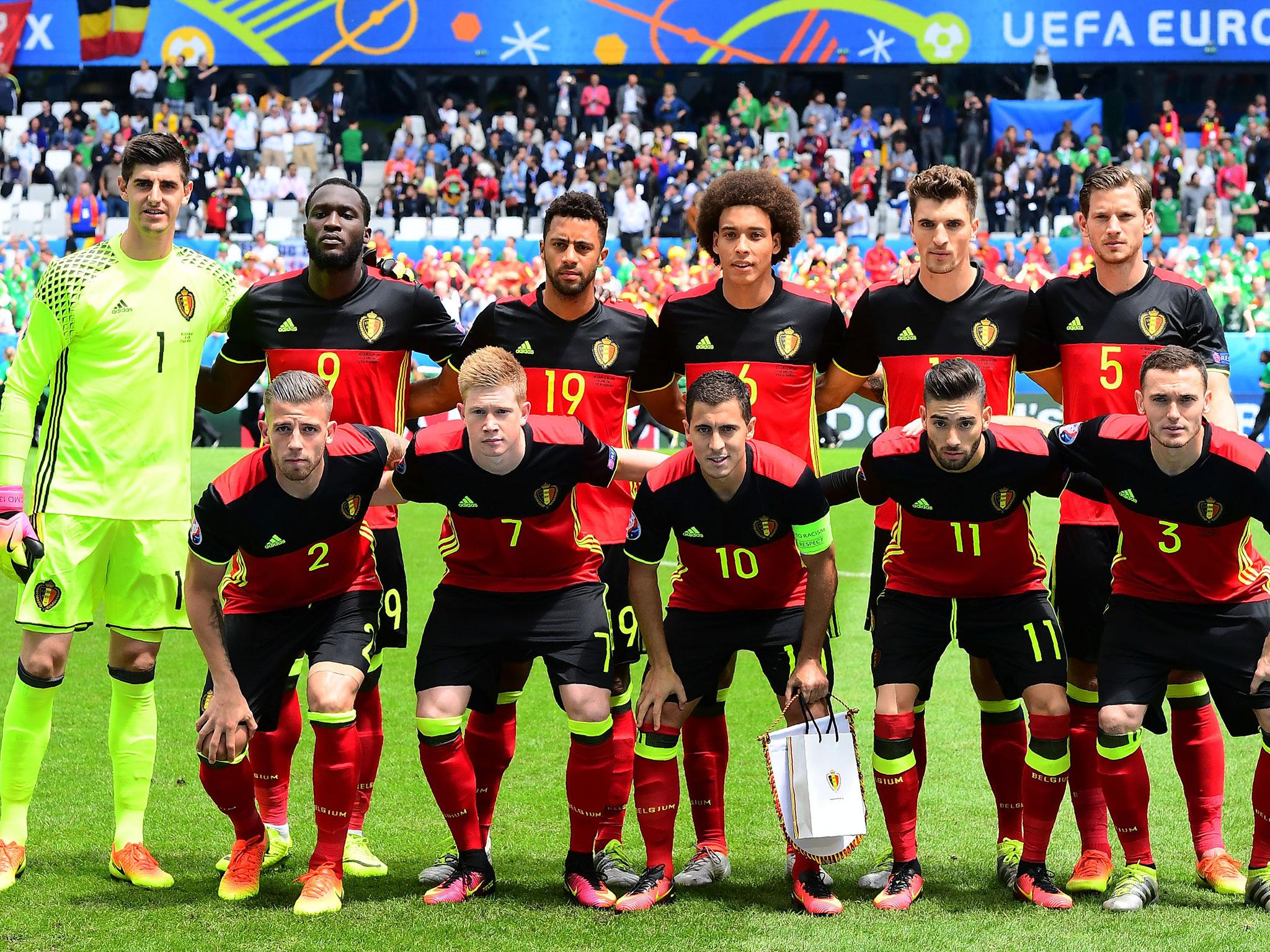Belgium Cup League, a cornerstone of Belgian football, boasts a rich history filled with dramatic upsets, legendary players, and unforgettable moments. This competition has shaped the nation’s sporting landscape, fostering rivalries and launching the careers of international stars. From its humble beginnings to its current status, the Belgium Cup League offers a captivating narrative of triumphs, defeats, and the enduring spirit of competition.
This in-depth look explores the evolution of the tournament format, profiling top-performing teams and highlighting memorable matches. We delve into the cup’s impact on Belgian football, examining its financial significance and role in player development. Finally, we consider the future of the competition and explore potential strategies to enhance its popularity and engagement.
History of the Belgium Cup League
The Belgian Cup, officially known as the Croky Cup due to sponsorship, boasts a rich history intertwined with the evolution of Belgian football. Its origins trace back to the early 20th century, undergoing several format changes and rule adjustments that shaped its current structure.
Browse the multiple elements of quando o manchester city joga to gain a more broad understanding.
Timeline and Rule Changes
The competition’s evolution can be charted through key milestones. Early editions saw limited participation, primarily from teams in the top division. Over time, lower league teams were included, increasing the competition’s breadth and excitement. Significant rule changes, such as the introduction of extra time and penalty shootouts to resolve tied matches, further refined the tournament. The shift to a knockout format, replacing earlier league-style structures, also marked a significant change.
The introduction of sponsorship, notably by Croky, significantly impacted the cup’s visibility and financial stability.
Tournament Format Evolution
Initially, the Belgian Cup employed a format heavily influenced by league structures. Later iterations adopted a straight knockout format, ensuring a thrilling progression towards the final. The inclusion of lower league teams added an element of unpredictability, making it a true national competition. The current format involves several preliminary rounds, allowing teams from lower divisions to compete against established clubs, creating compelling David-versus-Goliath storylines.
Notable Past Winners and Achievements
Numerous clubs have etched their names into the history of the Belgian Cup. Teams like Club Brugge and Anderlecht have dominated the competition, accumulating multiple titles and demonstrating consistent excellence. These victories often marked pivotal moments in their respective club histories, solidifying their legacies and providing a platform for national recognition. Analyzing their winning strategies and overall performance reveals insights into the factors contributing to success in the cup.
Top 5 Winning Teams, Belgium cup league
| Team | Number of Victories |
|---|---|
| Anderlecht | 9 |
| Club Brugge | 11 |
| Standard Liège | 4 |
| Beerschot | 3 |
| Royal Antwerp FC | 3 |
Participating Teams and Their Performance
The Belgian Cup draws participants from various leagues, creating a diverse field of competition. Analyzing the performance of teams across different leagues reveals interesting trends and highlights the impact of factors like squad depth, tactical flexibility, and overall team cohesion.
Consistent High Performers
Certain teams have consistently demonstrated strong performances in the Belgian Cup. Their success can be attributed to a combination of factors, including strong youth academies, effective scouting networks, and astute managerial decisions. A deeper look into their recruitment strategies and training methodologies can provide valuable insights for other clubs aiming to improve their cup performance.
Inter-League Performance Comparison
Comparing the performance of teams from different leagues reveals the competitive balance (or lack thereof) within Belgian football. Teams from the top division generally dominate the later stages of the cup, but upsets involving lower league teams add excitement and demonstrate the potential for surprise results. Analyzing these results offers valuable insights into the strengths and weaknesses of clubs across various tiers.
Top 10 Teams Based on Historical Cup Performance
| Rank | Team | Cup Appearances | Victories |
|---|---|---|---|
| 1 | Club Brugge | 70 | 11 |
| 2 | Anderlecht | 65 | 9 |
| 3 | Standard Liège | 58 | 4 |
| 4 | Beerschot | 45 | 3 |
| 5 | Royal Antwerp FC | 62 | 3 |
| 6 | Genk | 48 | 2 |
| 7 | Lierse SK | 42 | 1 |
| 8 | Cercle Brugge | 55 | 1 |
| 9 | KV Mechelen | 50 | 1 |
| 10 | Charleroi | 49 | 1 |
Notable Matches and Moments
The Belgian Cup has witnessed many memorable matches, characterized by dramatic scorelines, last-minute goals, and unexpected outcomes. These moments have become ingrained in the competition’s lore, shaping its narrative and captivating fans for generations.
Memorable Matches and Significant Goals

Specific matches stand out due to their high stakes, dramatic turns, and unforgettable goals. For example, a final featuring a late equalizer followed by a penalty shootout victory would be a prime example. Describing the context of these matches, the tension, and the impact of key goals helps to capture their significance. The atmosphere of these games, often electrifying, further enhances their legendary status.
Cup Final Atmosphere and Significance
The cup final matches represent the culmination of months of competition, attracting massive crowds and generating immense national excitement. The atmosphere within the stadium is usually electric, reflecting the passion and intensity of the competition. Winning the Belgian Cup holds significant prestige for any club, providing a boost to morale, fan engagement, and even financial benefits.
Visual Representation of an Exciting Cup Final
Imagine the final whistle blowing, the score tied 1-1 after extra time. The tension is palpable as players line up for the penalty shootout. Each successful penalty is met with a roar from the crowd, while each miss evokes gasps and groans. The final penalty, a decisive strike, sends one team into jubilant celebration while the other team is left heartbroken.
This dramatic scene encapsulates the essence of many Belgian Cup finals.
Significant Upsets and Unexpected Outcomes
The inclusion of lower league teams in the Belgian Cup creates opportunities for unexpected outcomes. Upsets, where a lower-ranked team defeats a higher-ranked opponent, add a captivating element of unpredictability. These matches often become talking points, highlighting the competitiveness of the tournament and the potential for underdog stories.
The Impact of the Belgium Cup League
The Belgian Cup plays a crucial role in the development and overall landscape of Belgian football. Its impact extends beyond the field, influencing the financial health and promotional aspects of the sport.
Role in the Development of Belgian Football
The cup competition provides opportunities for younger players to gain valuable experience against established teams, accelerating their development. It also serves as a platform for lesser-known players to showcase their talent, attracting attention from larger clubs. This contributes to the overall growth and competitiveness of Belgian football.
Contribution to the Overall Sporting Landscape
The Belgian Cup contributes to the vibrancy of the Belgian sporting calendar, offering a distinct competition that complements the league. It generates significant media attention and fan engagement, increasing the overall visibility and popularity of Belgian football both domestically and internationally.
Financial and Promotional Aspects
The cup competition generates revenue through broadcasting rights, ticket sales, and sponsorships. This revenue is reinvested into the development of clubs and the overall improvement of Belgian football. The promotional aspects of the cup are equally important, boosting the image of participating teams and attracting new fans.
Comparison with Other Domestic Cup Competitions
Comparing the Belgian Cup with similar competitions in other European countries reveals similarities and differences in terms of format, impact, and overall prestige. Factors like the level of media coverage, the prize money offered, and the overall fan engagement can be compared to understand the relative standing of the Belgian Cup within the European context. For instance, the FA Cup in England enjoys greater global recognition due to its history and media coverage, while the Belgian Cup focuses more on domestic impact.
Future Prospects of the Belgium Cup League

The future of the Belgian Cup hinges on addressing potential challenges and implementing strategies to enhance its popularity and appeal. Potential changes to the competition format and strategies to increase fan engagement are key considerations.
Potential Changes and Improvements
Exploring modifications to the cup’s format, such as adjusting the number of rounds or introducing a different scheduling system, could improve the competition’s flow and overall appeal. Considering the inclusion of new technologies, such as improved broadcasting or digital engagement tools, could also enhance the fan experience.
Potential Challenges Facing the Cup’s Future
Maintaining the balance between ensuring participation from lower league teams and preserving the competitive integrity of the tournament is a key challenge. Securing consistent sponsorship and managing the financial aspects of the competition are also crucial for its long-term sustainability. Competition for fan attention from other sporting events and entertainment options also presents a challenge.
Ideas for Enhancing Popularity and Appeal
Implementing strategies to increase fan engagement, such as improving the matchday experience, enhancing digital content, and creating community events, can bolster the cup’s popularity. Collaborating with media outlets to increase coverage and focusing on storytelling aspects of the competition can also significantly enhance its appeal.
Strategies for Increasing Fan Engagement
- Improved matchday atmosphere through enhanced entertainment and fan interaction.
- Development of a dedicated digital platform with exclusive content and interactive features.
- Launch of community outreach programs to engage with local fans and foster a sense of belonging.
The Belgium Cup and its Players
The Belgian Cup has served as a stage for many notable players, providing a platform for their development and recognition. Analyzing their contributions reveals the impact of individual talent on the competition’s history.
Notable Players and Their Contributions
Numerous players have left their mark on the Belgian Cup, achieving remarkable feats and contributing to memorable moments. Highlighting their performances and analyzing their impact on specific matches or teams helps to illustrate their significance. Their stories often intertwine with the history of the competition, adding to its rich narrative.
Impact on Player Development and Recognition
The cup competition provides a valuable platform for player development, offering opportunities to compete against higher-level opposition and gain valuable match experience. This can lead to increased recognition, attracting the attention of scouts from larger clubs both domestically and internationally.
Top 5 All-Time Leading Scorers in the Belgium Cup
- Paul Van Himst
- Erwin Vandenbergh
- Veselin Vutov
- Robert De Veen
- Luc Nilis
The Belgium Cup League stands as a testament to the enduring power of football in Belgium. Its history is a tapestry woven with thrilling matches, iconic players, and the unwavering passion of fans. While challenges remain, the potential for growth and continued success is evident. As the competition evolves, its legacy as a vital part of Belgian sporting culture is secure.

